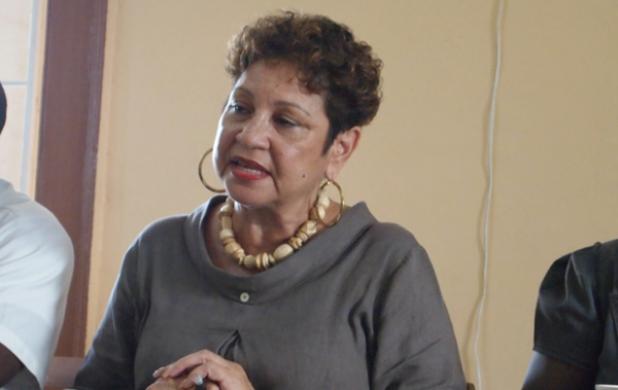
President of the Barbados Secondary Teachers’ Union, Mary-Ann Redman.
Redman: Education system in trouble
All students do not learn in the same manner or at the same pace and the country’s education system is failing to reflect this.
President of the Barbados Secondary Teachers’ Union Mary-Ann Redman said that as a result of pushing mainly academics, the educational system was now in crisis.
Pointing out the curriculum at the primary school level was “too expansive” due to the 11-plus examination demands, she insisted too many students were failing to grasp it.
“Consequently, numerous students, as indicated by many eleven-plus scores, are not grasping the academic fundamentals yet. They are forced into a Secondary school and its curriculum that they are not equipped to handle. Additionally, they lack the soft skills to address their resulting frustrations and interactions at that level,” Redman stated.
The union President insisted the nursery/primary level must be restructured to allow for behaviour change modification, with teachers properly trained to effectively emphasise and heavily focus on the soft skills: interpersonal skills, values education, conflict resolution, respect for self, for others, for the environment and for the nation.
“Children must again be taught empathy and to be our brother’s keeper. The reality is that this societal responsibility must now fall into the lap of the school. There must be a shift from the too early concentration on “pure” academics to a profound attentiveness to the inculcation of positive attitudes and behaviours, which would complement the later introduction of the foundation tools for academic learning,” she stressed.
She therefore lauded the intentions outlined by Prime Minister Mia Mottley to introduce middle schools.
“With a revamping of the primary curriculum and the completion of a middle school programme, we believe that the children at around fourteen years old, would be better placed to function in Secondary Schools, having identified their choices of subject areas at secondary level after completing a programme that would have offered them the fundamentals, in keeping with their identified needs and interests,” Redman added.
In addition to calling for the reintroduction of testing in primary schools for vision/hearing/speech, she argued the criterion reference testing must be used for what it was “originally intended”.
“We accept that some form of testing must take place to assess the effectiveness of the teaching/learning process for the student at the end of the primary school experience. Regardless of whether it is continuous assessment, or an exit exam like eleven-plus, that is to be determined. What is of fundamental importance however is how we treat to the results of such an assessment. We believe that too many problems in our system revolve around the retention of an approach that treats all students essentially the same and, regardless of the capabilities at eleven years old as reflected in the exam score, most students are exposed to fundamentally the same programme to be completed in a similar time frame.
“The largely inflexible policy and system that paints all with one brush, with no appropriate differentiation in relevant programmes in keeping with identified needs has contributed to the deep frustrations that many of our young people feel. Their resulting low self-esteem, negative value system and hopelessness has contributed, in too many instances, to the youth deviance that we see today. There must be a shift to allow for evaluation of student needs to be catered to in a much broader and more inclusive way,” she opined.
